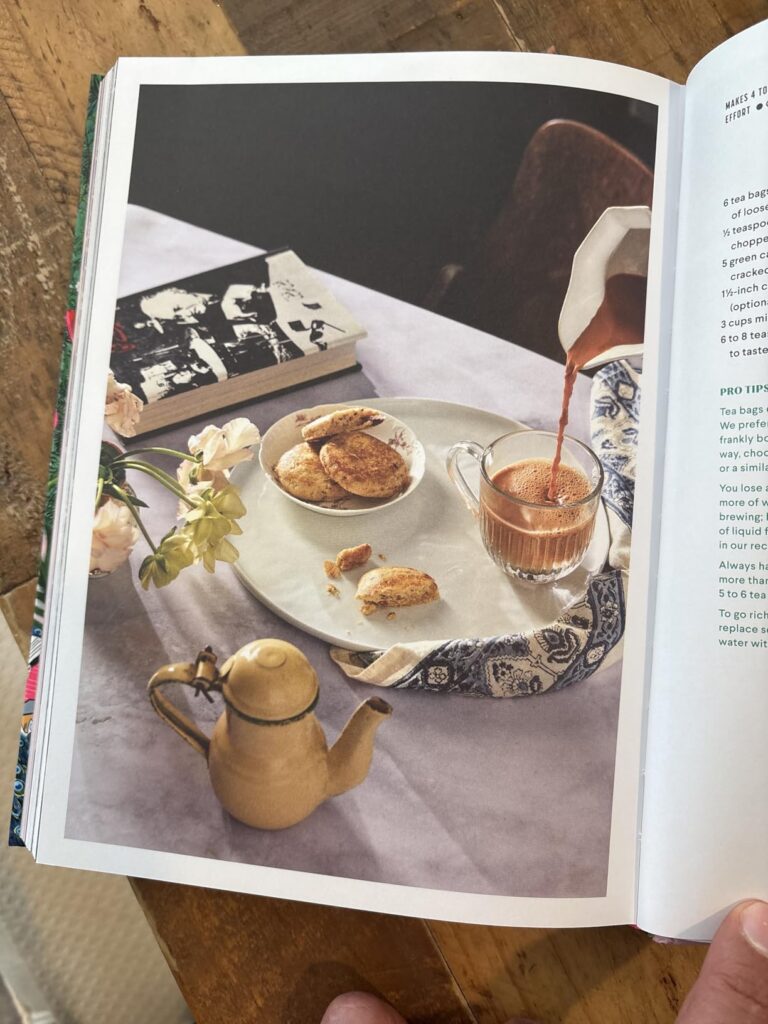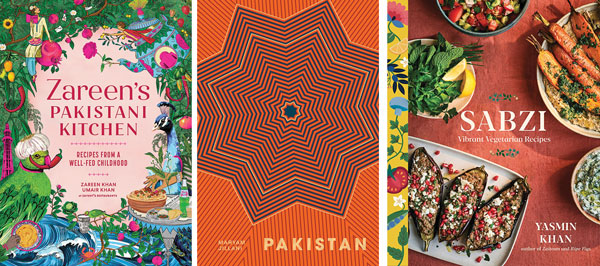I read Zareen’s Pakistani Kitchen: Recipes from a Well-Fed Childhood cover to cover—not just as a cookbook but as a story, one that felt deeply personal. It made me think of my sister, who lives in Chicago and often visits Pakistani restaurants there, searching for a connection to home through food. When she comes back to Karachi, she seeks out the same flavors she grew up with—some of which Zareen writes about so vividly in this book.
Second-generation kids go to restaurants in search of something they can’t always name—a taste that links them to the past. Even for those of us still here, this book is a reminder not to take anything for granted. It’s easy to assume that simple dal chawal, the scent of frying pakoras before rain, or the specific way a street-side bun kabab tastes will always be available. But what happens when they’re not?
Zareen Khan and Umair Khan have crafted a book that captures this mix of longing and celebration beautifully. With stunning food photography by Neetu Laddha and evocative imagery of Karachi by Khaula Jamil—showing the seaside, Burns Road, and bustling food stalls this book is as much about place as it is about taste. It is a blend of high and low, of special-occasion dishes and nostalgic home cooking, of food as it is remembered and food as it is reinvented.

At a time when migration is so politicized, when belonging feels tenuous, Zareen’s Pakistani Kitchen is a quiet act of defiance. It insists that Pakistani food belongs in America too—not just as an exoticized “curry,” but in all its warmth, complexity, and history. My sister’s experience mirrors this. At her workplace, all the people from South Asian backgrounds—Pakistani, Indian, or Bangladeshi—make a point to get together and visit desi restaurants in their city, forming their own little community around shared flavors. Zareen’s restaurant in California is that kind of place—a gathering spot, a bridge between generations, a way for people from all backgrounds to appreciate a cuisine that refuses to be simplified.
This book is not just for Pakistanis. It is for anyone who has ever felt nostalgia for a place they can’t return to or for a culture that feels like it is slipping away. It is for those who understand that sharing food is one of the most radical acts of hospitality in a world that increasingly pushes people into isolation.
The book also has a purpose beyond the plate. The authors have collaborated with a remarkable group of women—Nadiya Hussain, Sana Amanat, Ayesha Chundrigar, Michelle Tam, Rupi Kaur, and Stacy Brown-Philpot—who are not only successful in their own fields but have committed to donating half of the book’s earnings to a diverse range of charities. From the Palestinian Children’s Relief Fund to ACF Animal Rescue Pakistan to Planned Parenthood, the book aligns itself with causes that reflect care, justice, and community-building.

The way Zareen and Umair structure the book—sections like Midnights in Karachi, Halka Pulka, The Desi Pantry, Meetha—feels like a journey through childhood and the adaptations they have made in a new home. They acknowledge that some ingredients are harder to find in the U.S., but this is not a loss. Instead, it can be embraced as evolution, much like the immigrant experience itself.
Her insistence on homemade spice blends (“Nothing store-bought will beat the aroma and flavor of homemade garam masala and chaat masala”) speaks to a longing for authenticity, even when home is far away. The chapter on Karachi’s midnight food culture felt like a love letter to the city’s vibrant street food scene, from the simplest bun kababs to the refined dishes of the city’s East End. But even as we are taken on this culinary walk through Karachi, there is an understanding that for many readers, these foods exist only in memory.
And that is why this book matters. It allows readers—especially those of the South Asian diaspora—to recreate what they have lost, even if only in their own kitchens.
In a world where borders are hardening and immigrant communities are often made to feel unwelcome, books like Zareen’s Pakistani Kitchen remind us why food matters. It is a way to pass down culture when language fades. It is a way to say, I am still here.
Zareen’s story—of love, illness, survival, and success—is deeply personal yet universal. At its core, Zareen’s Pakistani Kitchen is about what it means to belong—to a family, to a city, to a country you build for yourself when the one you were born into is too far away. And at a time when so many people feel displaced, that message has never been more important.
This cookbook is not just a manual; it is a map for those trying to find their way home.
Zareen’s Pakistani Kitchen is available on Amazon





 THE QUEEN OF MY DREAMS
THE QUEEN OF MY DREAMS  A heartfelt story
A heartfelt story 


 This summer, let your child explore,
This summer, let your child explore, 






 Saim
Saim 
